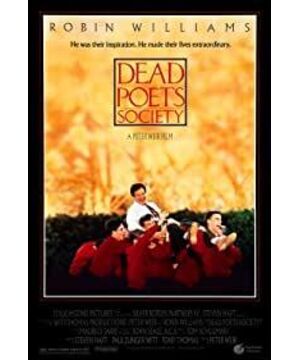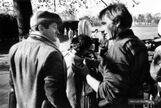In 1845, 28-year-old THOREAU built a seat on the shore of Walden Lake in the woodland of his friend EMERSON Staying in a wooden house, he lived a pure-hearted, self-sufficient life for more than two years, and often jot down his thoughts, thoughts and understandings, so there is such a book. In the
Chinese version of Xu Chi's book. It is the most famous (the Shanghai translation and the Jilin People’s Publishing House have been published, the packaging is different, and the content is the same). I personally think that this kind of book is not an older generation of scholars like Xu Chi (I see His photos, a clear and peaceful old man) cannot be translated. After all, it is an article more than 150 years ago, and it is about the transcendental problem of "how people communicate with the divine nature through pure senses". It's a mess if it's not practical, and it's a mess if it's not in harmony with the times. Nowadays, translators are more lively, and their attitude towards such works may only be a simple "you are stupid".
I went to the woods because I wished to live deliberately, to front only the essential facts of life, and see if I could not learn what it had to teach, and not, when I came to die, discover that I had not lived. I did not wish to live what was not life, living is so dear; nor did I wish to practise resignation, unless it was quite necessary. I wanted to live deep and suck out all the marrow of life, to live so sturdily and Spartan -like as to put to rout all that was not life, to cut a broad swath and shave close, to drive life into a corner, and reduce it to its lowest terms, and, if it proved to be mean, why then to get the whole and genuine meanness of it, and publish its meanness to the world; or if it were sublime, to know it by experience, and be able to give a true account of it in my next excursion. For most men, it appears to me,are in a strange uncertainty about it, whether it is of the devil or of God, and have somewhat hastily concluded that it is the chief end of man here to "glorify God and enjoy him forever."
Henry David Thoreau: Walden, or Life in the Woods,
I went to the woods, because I wanted to live with caution and only face the basic facts of life, to see if I could learn what life needs to educate me, so as not to get dying. At that time, I realized that I had never lived. I don't want to live a non-life life, life is so lovely; but I don't want to practice and live a secluded life, unless it is a last resort. I want to live so deeply that I can absorb all the essence of life, live steadily, and live in a Spartan style, in order to eradicate everything that is not life, and set aside a mowing area. Mowing or pruning, compressing life into a corner, reducing it to the lowest condition, if it proves to be humble, then realize all the real humbleness and take its humble place Publish it to the world; or, if it is noble, use personal experience to experience it, and I can make a true report on my next trip. Because, in my opinion, most people are still not sure whether their lives belong to the devil or God. However, they are somewhat light-hearted in their judgments, believing that the main goal of life is to "glorify God, and always follow God." Get joy there". (Translated by Xu Chi)
"Oh, Captain! My Captain!" read by ROBIN WILLIAMS is to commemorate Bearded Lincoln, the original WHITMAN (1819-1892), from LEAVES OF GRASS: Memories of President Lincoln. I don’t have a Chinese translation at hand, but the problem is not big. WHITMAN’s poems are still very easy to understand. He lives in an era where people can be free and straightforward and vulgar, vulgar is pure, vulgar is majestic, and vulgar is thriving. , Is extremely vulgar and cute. After that, American literature has changed from romanticism to realism, from WDHOWELLS to MARK TWAIN to HENRY JAMES to JACK LONDON, the theme gradually became deep, the plot became more complicated, and the writer's pen gradually became muddy. The nature that followed. Although the writing of the doctrine is a little relieved, the theme has reached the solemn extreme. The era of WHITMAN is gone forever.
O CAPTAIN! MY CAPTAIN!
O Captain! my Captain! our fearful trip is done,
The ship has weather'd every rack, the prize we sought is won,
The port is near, the bells I hear, the people all exulting,
While follow eyes the steady keel, the vessel grim and daring;
But O heart! heart! heart!
O the bleeding drops of red,
Where on the deck my Captain lies,
Fallen cold and dead.
O Captain! my Captain! rise up and hear the bells;
Rise up&emdash; for you the flag is flung&emdash;for you the bugle trills,
For you bouquets and ribbon'd wreaths&emdash;for you the shores a-crowding,
For you they call, the swaying mass, their eager faces turning;
Here Captain! dear father!
The arm beneath your head!
It is some dream that on the deck,
You've fallen cold and dead.
My Captain does not answer, his lips are pale and still,
My father does not feel my arm, he has no pulse nor will,
The ship is anchor' d safe and sound, its voyage closed and done,
From fearful trip the victor ship comes in with object won:
Exult O shores, and ring O bells!
But I with mournful tread,
Walk the deck my Captain lies,
Fallen cold and dead.
I have always been more interested in the poetry of ROBERT FROST (1874-1963). When I was in the American literature class in my junior year, I was inexplicably excited when I heard the names of him and HENRY JAMES. Like FAULKNER, FROST is also A late bloomer, he moved to New England with his mother after losing his father at the age of 11. He studied at Harvard, but his studies were unfinished. From 1900 to 1909, he lived in the countryside, raising chickens, drinking wine, farming, writing poetry, and spending a period of comfort. Quite a dull life. In 1912, he went to LONDON and met the early Imagist poets FSFLINT, EZRA POUND, EDWARD THOMAS, etc.. In 1913, he published the first collection of poems A BOY'S WISH, which began his poetry career. , And then developed all the way: when he was a professor of poetry at Harvard in his middle age, he won the Pulitzer Prize four times and became the most famous poet in the United States. FROST believes that the role of a writer is to say "what the people understand but cannot say". He often composes poems based on the bits and pieces of New England, absorbing symbols and metaphors from life, and incorporating the local spoken language into the expression style of the poem. Therefore, the works are plain and calm, but the meaning is far-reaching, which is the so-called" "The
Great Principle in the Little Life". " THE ROAD NOT TAKEN" is one of his masterpieces. It reminds us of the ancient legend of Yang Zhu crying when he sees the wrong road. In fact, I want to face the choice when facing the branch road. Saying that I don’t know what to do, but I still have a bit of bottom. After hesitating about true or false, I will eventually step on a path. And if I read the poem by FROST again, it is obvious that it is just To make yourself a little better.
THE ROAD NOT TAKEN
Two roads diverged in a yellow wood,
And sorry I could not travel both
And be one traveler,long I stood
And looked down one as far as I could
To where it bent in the undergrowth;
Then took the other, as just as fair,
And having perhaps the better claim;
Because it was grassy and wanted wear;
Though as for that, the passing there
Had worn them really about the same,
And both that morning equally lay
In leaves no step had trodden black.
Oh, I kept the first for another day!
Yet knowing how way leads on to way,
I doubted if I should ever come back.
I shall be telling this with a sigh
Somewhere ages and ages hence;
Two roads diverged in a yellow wood,and I—
I took the less traveled by,
And that has made all the difference.
The last thing to mention is Shakespeare’s sonnet No. 18 and Byron’s "She is walking slowly in the United States." When two girls came in the cave of Death Poetry Club, the two boys gave them a compliment. The beautiful sentences that came out actually came from these two immortal masterpieces. In any case, the brilliance that MM radiates when they hear the good poem is absolutely dazzling and unforgettable!
Sonnet 18
Shall I compare thee to a summer's day ?
Thou art more lovely and more temperate:
Rough winds do shake the darling buds of May,
And summer's lease hath all too short a date:
Sometime too hot the eye of heaven shines,
And often is his gold complexion dimmed,
And every fair from fair sometime declines,
By chance, or nature's changing course untrimmed:
But thy eternal summer shall not fade,
Nor lose possession of that fair thou ow'st,
Nor shall death brag thou wand'rest in his shade,
When in eternal lines to time thou grow'st,
AS CAN Breathe Men Long SO or CAN Eyes See,
SO Long Lives the this, and the this Gives Life to thee.
William Shakespeare
Shakespeare poem, a translation will die, especially the last two sentences!
She Walks an In Beauty
She Walks in Beauty, like the night
Of cloudless climes and starry skies;
And all that's best of dark and bright
Meet in her aspect and her eyes;
Thus mellow'd to that tender light
Which heaven to gaudy day denies.
One shade the more, one ray the less ,
Had half impair'd the nameless grace
Which waves in every raven tress,
Or softly lightens o'er he face;
Where thoughts serenely sweet express
How pure, how dear their dwelling-place.
And on that cheek,and o'er that brow,
SO Soft, SO CALM, yet Eloquent,
at The Smiles thatv win, at The tints that Glow,
But Tell of Days in goodness spent,
A Mind AT Peace with All below,
A Heart Whose Love IS Innocent!
George Gorden Byron
she was walking in the United States and Shanshan
Byron,
she walks slowly in the beauty,
like a starry sky and a cloudless night;
the essence of light and darkness
crosses her face and eyes;
this turns into a soft light, and the
sky is not allowed to flashy day Share. One
more shadow, one less light,
it will be half-damaged and half-damaged
on her hair, and her face will shine, that
kind of nameless beauty; the
quiet and fresh thoughts on her face
show how pure it comes from.
On that cheek, between the eyebrows,
so gentle, so quiet, better than slick words,
lovely smiles, brilliant brilliance, it
means that the years have passed steadily in kindness,
peace of mind, and no contention. , The
heart is bright, the love is pure.
Translated by Li Jiye
View more about Dead Poets Society reviews






